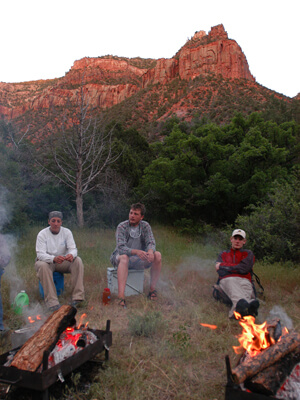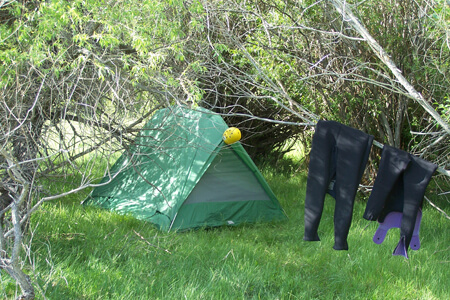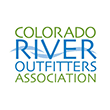Whitewater rafting in Colorado is amazing, but you don’t want to return from your trip covered in bites. Don’t worry. This ultimate repellant guide has you covered!
There are few experiences that offer the adventure, beauty, and excitement of Colorado whitewater rafting trip. There’s nothing like leaving civilization behind to immerse yourself in the powerful currents of Colorado’s famous rivers. A Colorado whitewater rafting trip has so much to enjoy! However, to make your excursion perfect, there’s just one thing to take care of: getting those darned skeeters off of you!
Mosquito bites can put a damper on any occasion. Fortunately, this is an easy problem to deal with. To avoid coming home from your Colorado rafting adventure with your skin covered in bites, we present you with this complete guide to keeping mosquitoes off your back (and the rest of your body).

Stay Away from Mosquito Hotspots
Sometimes, the best way to win the war against mosquitoes is to choose your battles.
This means avoiding areas prone to mosquitoes. By being around fewer mosquitoes, you naturally reduce the chances of being bitten. Thus, it’s important to understand where mosquitoes live. These obnoxious bugs breed in and around standing water. They love anywhere that’s damp and humid. Naturally, you won’t be staying dry when on a Colorado whitewater rafting trip. No need to worry though, our rivers flow fast enough to keep mosquitoes from settling. It’s the still water – the puddles and the ponds – that are dangerous. Unless you’re looking for a mosquito confrontation, you’ll do well staying away from still bodies of water. Set up camp somewhere dry. If the mosquitoes get in your tent, you’re done for!
Avoid Peak Mosquito Hours
Typically, mosquitoes are most active at dawn and dusk. These times are their peak feeding hours. If you’re out within this timeframe, you may be in for a bite! If you plan on taking a long hike, it’s best to begin before dawn or sunset. Maybe you’re more in the mood to sleep in and sneak in a short hike before hitting the water. If that’s the case, wait until early morning passes before going out. Just like with hiking, schedule your cooking and eating to avoid these peak hours so you don’t attract huge numbers of mosquitoes.
Wear the Right Clothes
Did you know mosquitoes have favorite colors? They’re most drawn towards dark colors like black, brown, gray, and blue. If you want to pass by mosquitoes unnoticed, simply opt for light colors. Long sleeves, long pants, and closed-toed shoes are your best friends when you’re passing through mosquito territory. You want to put as many layers as possible (or comfortable) between yourself and the little blood-suckers. There are even clothes you can buy that are treated with the repellent permethrin. While these don’t eliminate the need to apply repellent to your skin, they do serve as an additional deterrent.
Choose the Right Mosquito Repellent
There are many repellents out there, but the most well-known and time-proven is DEET.
DEET was developed by the US Army in 1946 and is extremely powerful. The repelling effect lasts from ten to twelve hours, depending on the concentration in the product you choose. Combining a DEET-based repellent with permethrin-treated clothes will make you a walking anti-mosquito machine. Take note though as DEET can damage materials like spandex, vinyl, leather, and rubber. There’s no need to worry about what to wear – cotton, wool, and nylon are completely unaffected by DEET. Picaridin is another effective repellent. It was made in Europe in the late 1990s and has been in use in the US since the early 2000s. Picaridin’s effect lasts about eight hours. Unlike DEET, it doesn’t damage any fabrics or materials.
Natural Repellents
A lot of people like to avoid anything synthesized in a laboratory. If you prefer all-natural products, there are plenty of effective plant-based solutions you can use on your Colorado whitewater rafting trip.
Lemon Eucalyptus Oil
This is a trusted solution for keeping mosquitoes away. The Centers for Disease Control and Prevention has recognized lemon eucalyptus oil as being highly effective. You can easily make your own mixture at home. Just take one part lemon eucalyptus oil to ten parts sunflower oil and you’re good to go!
Cinnamon Oil
This little-known mosquito repellent is extremely powerful for warding off mosquitoes and even killing mosquito eggs. Be careful, though – concentrated cinnamon oil can irritate your skin. Prevent this by making a diluted solution: 1/4 teaspoon of cinnamon oil for every four ounces of water should take care of you.
Soybean Oil
There are many soybean based products on the market that provide long lasting protection from mosquitoes. These typically have a two-percent soybean content and can be found online or at natural food stores like The Lettuce Head here in Buena Vista.

Don’t Forget About Protection While You Sleep
It’s important to get the right bedtime anti-mosquito gear when you go rafting in Colorado. You’re most vulnerable when you’re asleep because you can’t defend yourself. If you’re extremely concerned, you can place a mesh net inside your tent to keep mosquitoes away. Keep flashlights off when you’re opening up your tent at night since mosquitoes are attracted to light. You don’t want to tip them off about the entrance to your safe zone! When it comes to snacks you may have brought, be sure to store all food and drinks in airtight containers away from your tent. The presence of food is sure to bring mosquitoes knocking at your door.
Leave Your Perfume at Home!
Keep in mind that mosquitoes follow strong scents. When they smell perfume, deodorant, or even aromatic lotions, they hone in for the kill. Safe yourself the hassle and don’t even make this one an issue. The easiest way to avoid mosquito bites, is to ditch the perfume or cologne and get in touch with your more wild side while on your Colorado rafting trip. (P.S. Here’s what to pack instead).
Keep the mosquitoes Out of Your Colorado Rafting Trip!
Let’s face it, mosquitoes are really annoying and can ruin the mood of an otherwise great whitewater rafting trip. While you can’t make mosquitoes disappear altogether, you can take big measures to keep them at bay. Knowing how to avoid them is the first step. Then, it’s a matter of choosing the right repellent, dressing properly, and practicing good food storage at camp. Do this and you’ll come home with more good memories and less itchy mosquito bites 😉









